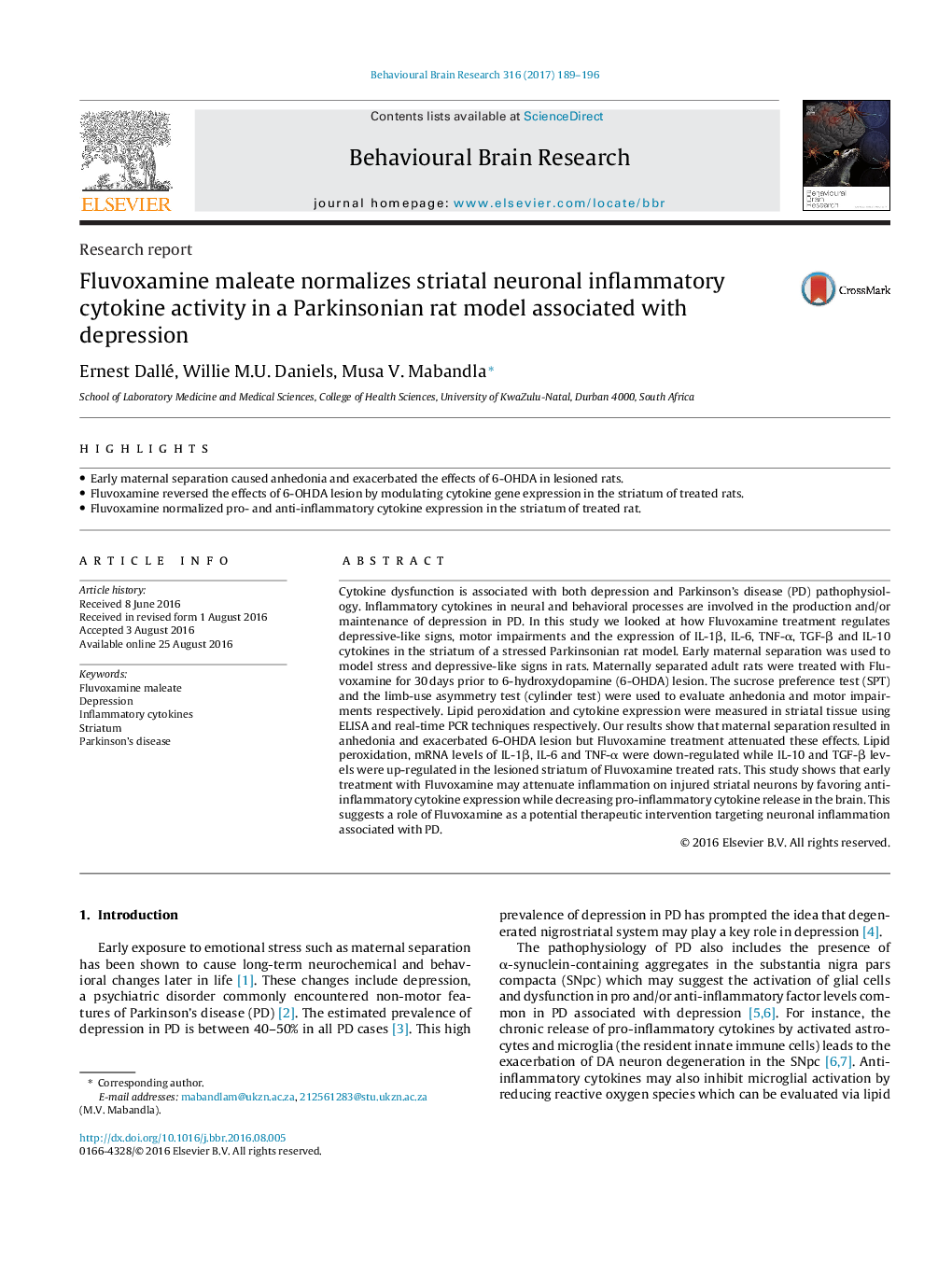| Article ID | Journal | Published Year | Pages | File Type |
|---|---|---|---|---|
| 4312013 | Behavioural Brain Research | 2017 | 8 Pages |
•Early maternal separation caused anhedonia and exacerbated the effects of 6-OHDA in lesioned rats.•Fluvoxamine reversed the effects of 6-OHDA lesion by modulating cytokine gene expression in the striatum of treated rats.•Fluvoxamine normalized pro- and anti-inflammatory cytokine expression in the striatum of treated rat.
Cytokine dysfunction is associated with both depression and Parkinson’s disease (PD) pathophysiology. Inflammatory cytokines in neural and behavioral processes are involved in the production and/or maintenance of depression in PD. In this study we looked at how Fluvoxamine treatment regulates depressive-like signs, motor impairments and the expression of IL-1β, IL-6, TNF-α, TGF-β and IL-10 cytokines in the striatum of a stressed Parkinsonian rat model. Early maternal separation was used to model stress and depressive-like signs in rats. Maternally separated adult rats were treated with Fluvoxamine for 30 days prior to 6-hydroxydopamine (6-OHDA) lesion. The sucrose preference test (SPT) and the limb-use asymmetry test (cylinder test) were used to evaluate anhedonia and motor impairments respectively. Lipid peroxidation and cytokine expression were measured in striatal tissue using ELISA and real-time PCR techniques respectively. Our results show that maternal separation resulted in anhedonia and exacerbated 6-OHDA lesion but Fluvoxamine treatment attenuated these effects. Lipid peroxidation, mRNA levels of IL-1β, IL-6 and TNF-α were down-regulated while IL-10 and TGF-β levels were up-regulated in the lesioned striatum of Fluvoxamine treated rats. This study shows that early treatment with Fluvoxamine may attenuate inflammation on injured striatal neurons by favoring anti-inflammatory cytokine expression while decreasing pro-inflammatory cytokine release in the brain. This suggests a role of Fluvoxamine as a potential therapeutic intervention targeting neuronal inflammation associated with PD.
